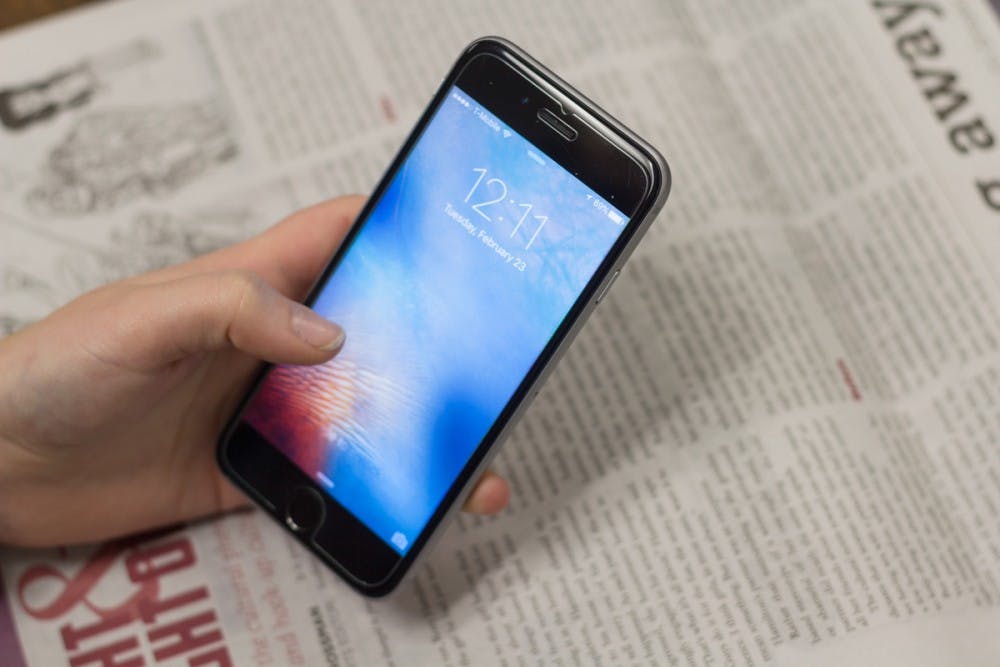The privacy of iPhone users may be in jeopardy.
The FBI has court ordered Apple Inc. to develop a technology that would allow access to the iPhone of Syed Farook, who with his wife killed 14 people in the San Bernardino, California attacks in December of 2015.
Apple has refused, with CEO Tim Cooke writing in an open letter that such technology could set a dangerous precedent and put the privacy and personal data of Apple customers in jeopardy.
U.S. Magistrate Judge Sheri Pym ordered Apple to comply with the FBI’s orders last week, but the company has said it will not comply – sparking a debate about the line between privacy and security.
Law professor Mark Bartholomew, who has a focus in cyberlaw, said he could “definitely see” why the FBI asked for Apple’s help. He said the case does not affect an individual’s privacy, as Farook is dead, but worries this case may set a precedent that can threaten others’ privacy.
Although the FBI told Apple the software would only be used to solve the San Bernardino case, Cook said in his letter that such a tool could be dangerous in the hands of cybercriminals.
Bartholomew said if the United States begins to look into people’s smartphones regularly, it might cause other governments to do the same.
“It could set a precedent for law enforcement to be a little overzealous,” Bartholomew said. “Other countries might think, ‘If the United States does it, why not for the Chinese or Russian government?’”
Abeda Alam, a junior aerospace engineering major, said she thinks it is OK for the government to look into the smartphones of a terrorist, but not civilians.
“The government shouldn’t take advantage of the liberties our country is built on,” Alam said. “I want to feel like my right to privacy is actually valued.”
But Alam said she feels that the government is already looking into her daily affairs.
Samiha Islam, a junior mechanical engineering major, also said she already feels the government has surveillance on smartphones.
“When I have a very private conversation with someone, I always have it face-to-face, but even that’s not private,” Islam said.
Islam said as a college student she does not have much to lose from her smartphone being hacked by cybercriminals, but she would feel threatened if she had an established career or family.
Bartholomew understands why many are concerned that their civil liberties are being violated.
“There’s this notion of personal privacy that this seems like a threat to,” Bartholomew said. “I don’t think the law gives a specific answer, but I really think it’s up to consumers and elected officials to try to decide if this is a breach of civil liberties.”
Bartholomew said while Apple may be concerned with the privacy of their customers, Cook’s refusal to comply with the judge’s order might be for other reasons.
“Apple put this letter out to their customers and their CEO feels strongly about this, but this is partially about their brand,” Bartholomew said. “Their brand is about slick enjoy design that people like to use but its also about privacy where they can say their device is where your information will be protected. Part of this is about the law and part of is a public relations thing”
Fight for the Future, a non-profit group that rallies for Internet rights, has organized on tech issues protested on in support of Apple.
The group said protests will occur in San Francisco, Los Angeles, Apple's Silicon Valley headquarters and FBI headquarters in Washington and other cities, according to the Los Angeles Times.
Ashley Inkumsah is a news desk editor and can be reached at ashley.inkumsah@ubspectrum.com.





